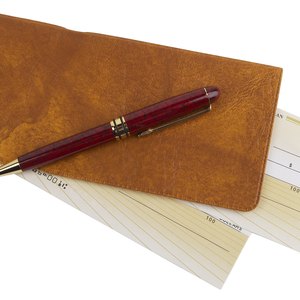
How you handle your personal or business checking accounts, including the disposal of checks and check registers, can have a direct impact on how secure your financial information is. Using effective and thorough disposal methods can go a long way toward protecting you from fraud or identity theft if done routinely and correctly. The disposal method most recommended by both banks and consumer protection agencies for used and unused checks is shredding.
Maintain used checks and checkbook registers as advised by your tax adviser, typically for three to seven years. Keep them in a safe location that is not accessible by unauthorized personnel. After this time, dispose of the checks and checkbooks.
Shred all old checks no longer needed for tax purposes completely along with the checkbooks and check registers. If you do not own a shredder, ask your bank for assistance shredding your old checks. Many banks offer this service, including major banks such as Bank of America and Regions. If your bank does not offer shredding to its customers, take the materials to be shredded to a major office supply store or take advantage of a public bank's or local government office's occasional shredding days offered as a service in many communities.
Destroy all unused checks by shredding, even if the account they were issued for is closed. Blank checks of any type might be used by unscrupulous individuals to gain access to your personal information or to perpetrate check fraud.
Completely remove any checking information or computer-based check programs from your computer before you dispose of it, sell it to someone else or donate it to charity. According to the Federal Trade Commission, you should "Use a wipe utility program to override the entire hard drive," to ensure any checking-related information on your computer is fully removed and no longer accessible.
Burn old checks, checkbooks and check registers completely if you have no shredding options available to you. Take all necessary precautions to keep the fire under control while burning the documents, and be sure the fire is extinguished completely when you are finished.
References
Writer Bio
As a national security analyst for the U.S. government, Molly Thompson wrote extensively for classified USG publications. Thompson established and runs a strategic analysis company, is a professional genealogist and participates in numerous community organizations.Thompson holds degrees from Wellesley and Georgetown in psychology, political science and international relations.

